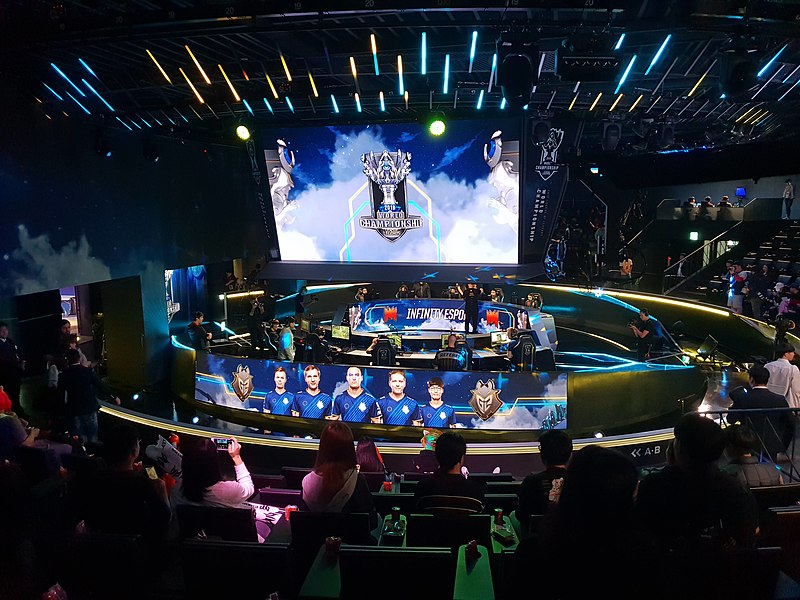How the pandemic affects esports
A SIGN OF THE TIMES: The League of Legends park has been recently repurposed as a streaming center for esports, rather than an arena.
April 25, 2021
Esports has skyrocketed in popularity and entertainment value as a result of being the only sport that has had no issues transitioning into the ongoing pandemic—or so people think. While the pandemic has indeed led to esports garnering more attention than before, esports suffers from many of the same problems as other mainstream sports, as well as other problems arising from the nature of the field itself.
ESports’s biggest advantage as a sport during the pandemic is that most players can compete online from the comfort of their homes. However, many esports still rely heavily on large stadium events that can even be of greater magnitude than numerous traditional sporting events. By forcing many of these major events to be played online, some circuits such as the Electronic Sports League (ESL) had to be completely restructured, which led to many problems arising during the tournaments themselves.
A prime example would be the conflict between esports organization 100 Thieves and the tournament officials of the VALORANT Champions Tour: Masters Stage 1. Since the tournament had to be played online, the two teams competing in the match had to choose an online server with an agreeable ping for both teams. Ping is the speed at which one’s device is able to connect to an online server, and as such, a higher ping would result in a player’s actions being registered slower than a player with lower ping. After the teams had selected a server, 100 Thieves demanded a change because of their apparently high ping, with the players on the team entering a private server that prevented officials from starting the match. This led to a one-hour delay, as well as the suspension of the team’s head coach Hector “FrosT” Rosario.
This situation brought to light serious problems with online tourneys: First, it is difficult to ensure fair gameplay (on LAN, where the players aren’t connected through the internet, but rather through a physical wire), as ping difference and connection speeds can lead to unfair advantages. Second, the teams have the ability to disrupt the games in ways that can cause major problems for everyone involved with the tournament—something that is much easier to do when there isn’t a tournament official that is actively monitoring the players in person.
Cheating is an additional factor that contributes to unfair gameplay. Cheats are checked before the match when playing on LAN, but this becomes difficult when playing online, as a tournament official cannot manually check a player’s device for suspicious software. This used to be a problem before the pandemic but is even more rampant now, with cheaters arising across the board of competitive games.
While esports may thrive during this online era, it suffers from a multitude of drawbacks which, in some cases, can have consequences worse than not playing at all. With more and more esports tournaments on the horizon, organizations are finding ways to eliminate these problems, with games like VALORANT hosting in-person LAN tournaments for the players, without a live audience and following proper COVID-19 guidelines. The world of esports can be watched from anywhere, whether it be your phone, television, or computer. But just like any other sport, without a physical event, things will never be the same.
























































